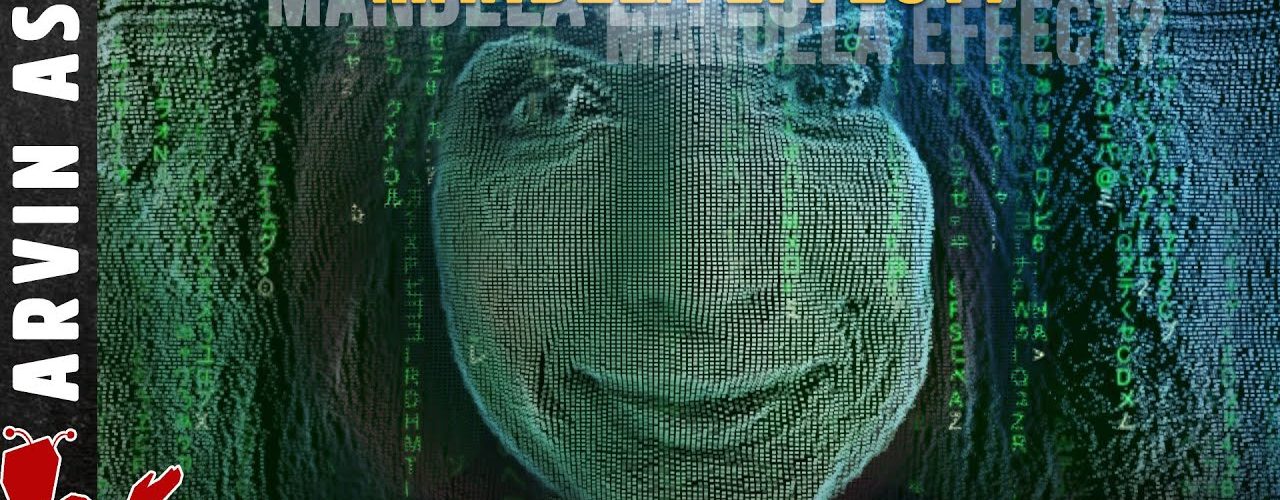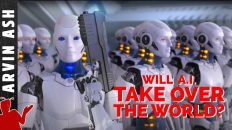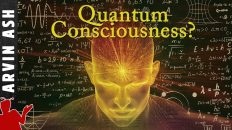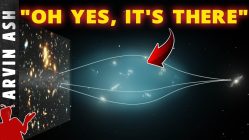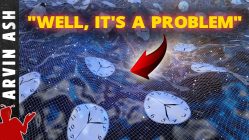We all remember the line, “Life is like a box of chocolates” from the movie, Forrest Gump. Or Darth Vadar saying, “Luke, I am your father” in Star Wars, Empire strikes back. Or the line, “Mirror, Mirror on the wall, who’s the fairest of them all” from the movie Snow White
Some of remember eating Jiffy peanut butter, and reading the Barenstein bears children’s books.
Don’t we? We do don’t we.
Scientists will tell you that none of what I said is true, that these are false memories. And here’s the proof.
But others say, no this is not correct. It can’t be correct.
The things I mentioned are actually true, and that somehow we have been thrust into a different parallel world where these things only appear to not be true, but that our memories serve as links to a past universe where all these things WERE true.
Is it possible that these people could be right? For example, could this be evidence that the many worlds interpretation of quantum mechanics is correct? What does science have to say about this phenomenon. That’s coming up right now…
—-
The term, “Mandela effect” was coined in 2009 by Fiona Broome, who describes herself as a “paranormal consultant.”
She published a website where she described remembering Nelson Mandela, who had been an imprisoned leader of the anti-apartheid movement in South Africa, dying in prison in the 1980s.
Broome could describe details like news coverage of his death and even a speech from his widow about his death.
Of course, in reality Nelson Mandela had not died. He was released in 1990, and went on to become president of South Africa. He died relatively recently in 2013.
But interestingly, Broome learned that many people shared the same memory, and other people remembered seeing news coverage of his death too.
How is it possible that so many people could share the same false memory?
Broome has several theories. One, that it could be due to the many worlds interpretation of quantum mechanics. If a near infinite number of parallel universes exist, then there could be a world where these false memories are correct, and that our memories are crossing paths with memories from these parallel universes.
Broome’s second theory is that this could be a sign that our world is a simulation in some computer, in other words, there’s some type of glitch in the matrix, where history was rewritten. BTW, there’s an interesting movie called the Mandela Effect recently released on Amazon Prime that explores this concept as a drama.
Other theories propose that the Mandela Effect could be caused by changes in our history due to time travelers trying to prevent paradoxes. There are also claims having to do with attacks by Satan, black magic or witchcraft. But none of these are testable.
Let’s look the possibility of the multiple universes and glitches in the matrix may be causing this.
I talked about the many world interpretation including an interview with Sean Carroll. It’s at the link above if you want to check it out. Essentially, it is the concept that the universe splits every time a quantum outcome occurs. This can lead to a near infinite number of universes where anything that is not forbidden by the laws of physics can potentially occur, including a universe in which Nelson Mandela may very well have died in prison in the 1980’s. These universes could very well exist, and indeed many physicists, particularly Sean Carroll believe they do exist.
But here’s the part where I’m afraid I’m going to burst some people’s bubbles. Just because they do exist does not mean that somehow we can communicate with them, or transfer our consciousness from one world to another.
In fact, the theory absolutely forbids any communication or information transfer between universes. This would violate not only the laws of quantum mechanics, but also basic conservation laws like conservation of energy and information.
The way the branching works is that when an observer, such as yourself, becomes entangled with a quantum event such as measuring the spin of an electron, a process called decoherence immediately forces a split such that there are now two versions of you. Think of this as your identical twin. The of you sees a spin up. And ther other one sees a spin down. These are two separate universes, which are closed systems. This means that all the energy and information must be conserved. No information can leak from one closed system to another.
Absolutely, positively no consciousness or information or energy transfer between worlds can occur at any time.
This is not only true for the many worlds interpretation of quantum mechanics, but also the theoretical multiverses of string theory, if string theory is true.
What about the idea of a glitch in the matrix?
This is like the holodeck on Star Trek. The idea is that maybe our reality is a computer simulation on a cosmological scale. And what if we are remembering something that actually happened but because of either a program error, or the masters of this simulation are playing tricks on us.
This is actually more plausible than the parallel worlds idea because theoretically we could be living in a simulation. I talked about this in a prior interview that you can check out above.
But if we are living in a simulation, then this means that the simulation controls absolutely everything including every thought and every possible memory you could possibly have because you yourself would also be a simulation.
Potentially, if there is a glitch in the simulation, the programmers could simply restart the program from a point prior to the glitch. You would not have a memory of this because the program that runs your brain would also restart from that same point. Your new simulated memories would not have formed yet. This is like taking a backup of your computer. If your computer had some glitch, you would use a back up copy of your hard drive. And whatever was the date of the backup, that’s what the files would contain. It would be like going back to a prior copy. In a simulation it would be like going back in time.
So the idea that the simulators or the matrix is playing trick on us, is unlikely, unless of course they were trying to simulate this exact Mandela effect. The bottom line is that this scenario is not testable. So we can speculate all we want.
You really have to consider, what is the most likely reason this occurs. And is there a simpler explanation?
And I think science quite clearly seems to indicates that there is.
This has something to do with not only how our brains are wired to store memory but also the psychology of our thought processes.
Memories are organized in the brain so that similar memories are stored in nearby neurons. This framework of the brain is called schema. This was reinforced by a 2016 study that used MRI to take a glimpse inside the brain on how memories are formed. And it showed that similar words are stored in adjacent areas of the brain.
So for example, Mandela didn’t die in prison, however, Steve Biko was also a South African anti-apartheid activist, imprisoned during the same time as Mandela. He was arguably as famous as Mandela at the time. The only difference is that that Biko died in prison. Maybe his was the death many people recalled. Because of these two people’s similarities, the memories may have been stored in the same part of the brain, and got jumbled during recall.
A leading psychological theory says that memory is constructed, not reproduced, that is to say the brain does not replay a recording, but builds memories from lots of little bits of information on the fly and spits it out.
So what happens is that when you recall memories, this can trigger other related memories in the brain.
This could explain the memory that people have about “Jiffy” vs “Jif” peanut butter. There is a similar sounding brand called “Skippy” peanut butter. And when recalling the name, the brain may be combining two different bits of information and causing the recall of a fictitious Jiffy brand, instead of Jif. Combine this with the fact that there is a Jiffy brand in the automotive repair market having nothing to do with peanut butter, and it is easy to see why our memories may be playing tricks on us.
Research shows that memories are not permanent, but fluid and subject to change. And they can be influenced by our expectations and associations with other memories.
So one explanation for the Barenstain vs. Barenstein memory is that names ending in “stein” are far more common than names ending in “stain.” People’s expectation is that it was barenstein not barenstain, so that’s what they recall.
These days, technology and social media is making it harder to acknowledge instances of false memories. We live in an era in which it is easy to form misconceived memories based on false information in various electronic echo chambers.
There are websites and facebook groups for example, that create communities based around misinformation. This selective exposure has been studied, and has shown that we are more likely to remember false events when they fit into our pre-existing beliefs and opinions.
Sara Palin never said, “I can see Russia from my house” – In the context of an interview, she said there are parts of Alaska where you can see Russia, which is perfectly correct.
Similarly, Al Gore never said he invented the internet. In the context of an interview, he said he created the infrastructure for the internet by pushing legislation in the early 90’s, which is also perfectly correct.
Facts don’t seem to change people’s memories or opinions. Frequently reported misinformation can become reality. And the viral power of the internet can magnify these false narratives, particularly when such false information confirms people’s preexisting opinions.
This is one of the reasons good lawyers don’t allow leading questions in a court of law that suggest a specific answer. So a leading question like, do you remember the line, “Mirror, Mirror on the wall…” from Snow White would be a leading question, because it would suggest the line is true and could create a false memory.
The upshot is that our memories are notoriously unreliable. They are vulnerable to false narratives, suggestions and a kind of group-think mentality. If other like-minded people believe it to be true, we also think it to be true.
In fact, in a sobering 2020 study published in Science mag of over 100,000 news stories discussed across Twitter over a period of 10 years, it was shown that hoaxes and rumors won out over the truth about 70 percent of the time. This wasn’t the result of manipulation or bots either—real verified accounts of real people were responsible for spreading false information.
So while the idea of the Mandela Effect is mostly fun to think about, and harmless, there can be real harm in holding false beliefs that are reinforced with misinformation. This is where we have to be careful to not only not let it harm us as individuals, but not let it harm society as well.

